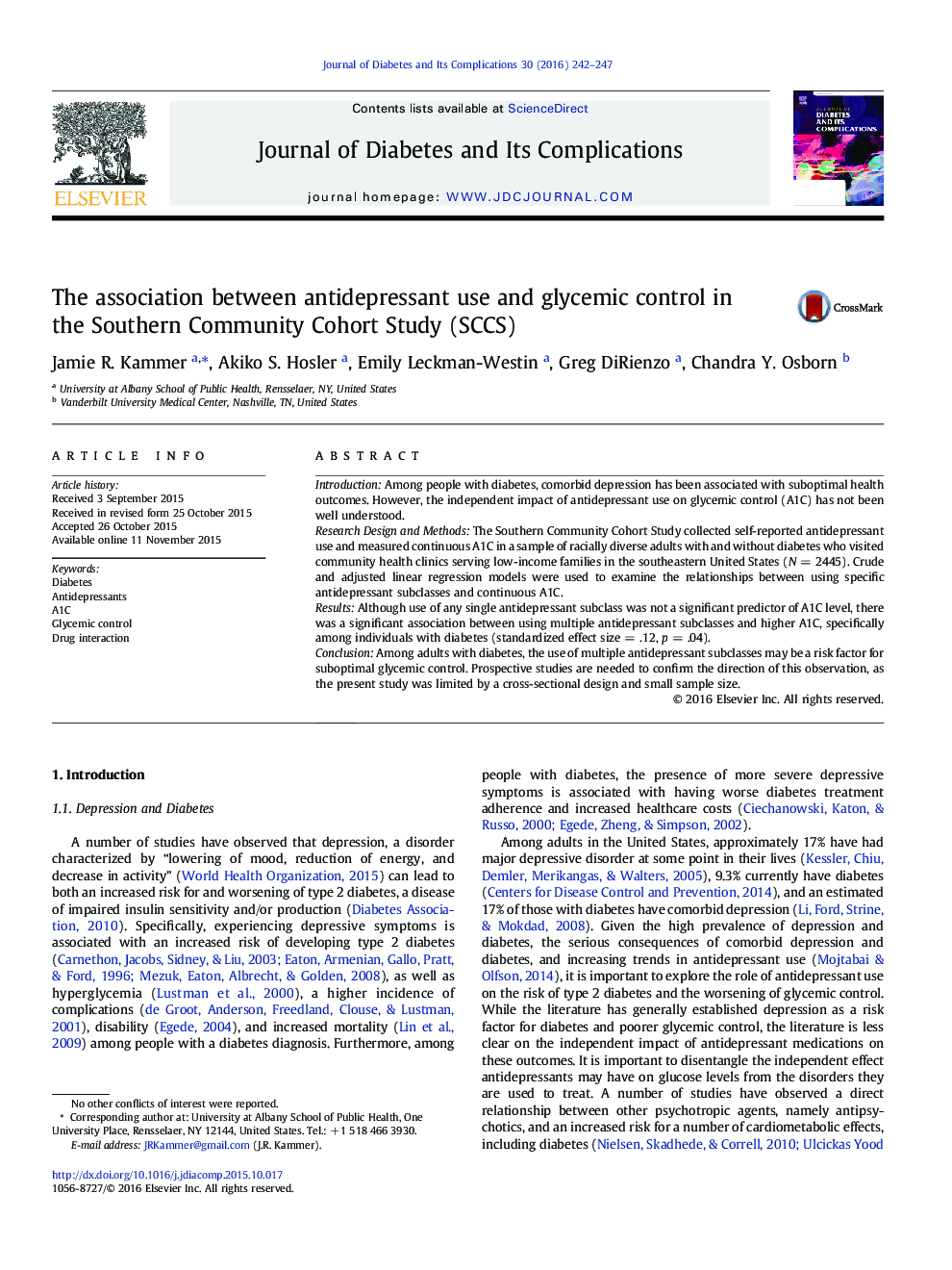| Article ID | Journal | Published Year | Pages | File Type |
|---|---|---|---|---|
| 5902135 | Journal of Diabetes and its Complications | 2016 | 6 Pages |
IntroductionAmong people with diabetes, comorbid depression has been associated with suboptimal health outcomes. However, the independent impact of antidepressant use on glycemic control (A1C) has not been well understood.Research Design and MethodsThe Southern Community Cohort Study collected self-reported antidepressant use and measured continuous A1C in a sample of racially diverse adults with and without diabetes who visited community health clinics serving low-income families in the southeastern United States (N = 2445). Crude and adjusted linear regression models were used to examine the relationships between using specific antidepressant subclasses and continuous A1C.ResultsAlthough use of any single antidepressant subclass was not a significant predictor of A1C level, there was a significant association between using multiple antidepressant subclasses and higher A1C, specifically among individuals with diabetes (standardized effect size = .12, p = .04).ConclusionAmong adults with diabetes, the use of multiple antidepressant subclasses may be a risk factor for suboptimal glycemic control. Prospective studies are needed to confirm the direction of this observation, as the present study was limited by a cross-sectional design and small sample size.
